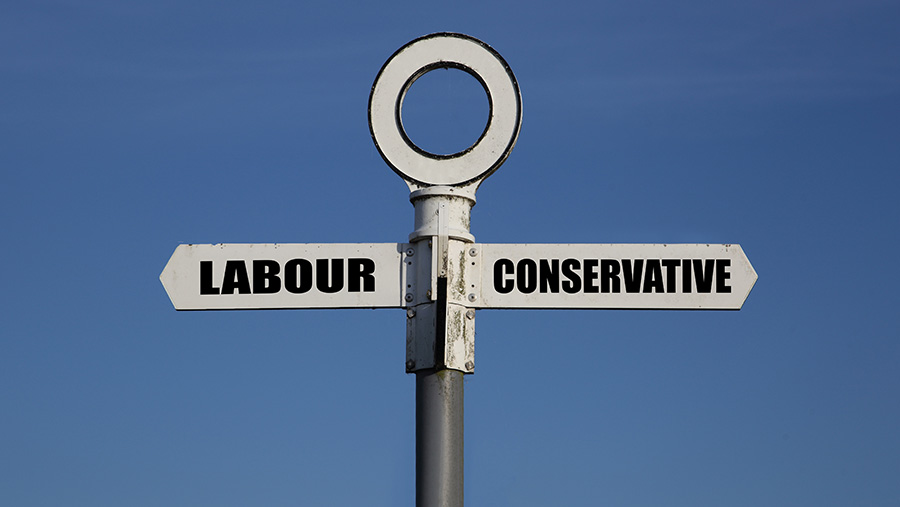Editor’s view: Promises, promises… but can Labour actually deliver?
 © Christian/Adobe Stock
© Christian/Adobe Stock After Brexit, the pandemic and the war in Ukraine, most farmers I speak to are feeling weary of politics.
But I’m afraid if you’re in that camp, I’ve got some bad news. An election is coming.
We all need to prepare ourselves for an onslaught of vapid three-word slogans, bad-tempered TV debates and a letterbox full of campaign literature – if, of course, your local candidates can be bothered to make their way down the farm drive.
See also: Editor’s view: Time mulling time is well spent
For those Conservatives who do, there’s likely to be an ear bashing or two.
The litany of farming disappointments over the past few years has been well-rehearsed: bad trade deals, a reluctance to tackle unfairness in food supply chains, a drop-off in support for high energy bills, a failure to secure an adequate workforce and, in England, low payments for delivering environmental goods after Brexit.
That’s why support for the Tories in rural areas has fallen like a stone, much as it has elsewhere in the country.
Labour, for its part, is riding high in the polls right now – even after a slight fall in recent weeks.
Quick to answer
And speaking to shadow farming minister Daniel Zeichner this week, it was clear this is a man on top of his brief.
After three years in post, he was happy to answer off-the-cuff questions, and capable of it too. This might seem like a low bar, but I can tell you it’s not always the case.
There was much to be welcomed in what he said. Farmers will be understandably cynical of any promises made ahead of an election – perhaps doubly so where money is concerned.
But his willingness to even hint at a possible increase in the agriculture budget was a refreshing change.
The £3.2bn that is currently spent on UK farming each year (£2.4bn in England) is an almost arbitrary number, inherited from our time in the EU.
No attempt has been made by government to calculate how much cash is actually needed to deliver on all the environmental ambitions it has set out in recent years, and farmers will be expected to do most of the heavy lifting on those.
Likewise, it was pleasing to hear recognition that the Environmental Land Management scheme could provide some “basic economic support” to farmers – even if details on how this will work in practice are scant.
For many, particularly those in the uplands, the numbers just don’t stack up at the moment. And once the rich cultural heritage in these places is gone, it’s gone forever.
Badger culling
Still, many of you will be deeply concerned to see the Labour Party sticking rigidly to its pledge to end badger culling.
This is a totemic issue for farmers; an acid test of a politician’s commitment to the countryside, because what works is unpalatable to an urban audience.
It is one of the policies the Conservatives were, up until Boris Johnson’s premiership, most lauded for in agricultural circles.
On this, as with their clumsily announced right-to-roam policy, Labour feels out of step with rural communities.
The latter was the one issue that tarnished an otherwise polished performance from leader Keir Starmer at the NFU Conference in February.
It’s hard to shake the feeling that these policies, designed for the middle classes in towns and cities who view the countryside only as a pretty backdrop for their weekend getaways, are denting the perception of the Labour Party in the eyes of farmers.
And let’s face it, that perception hasn’t yet quite recovered from the Blair-Beckett days.
So, is this new top team a government in waiting? That’ll be for you to decide – once the torture of the campaign is over, of course.

